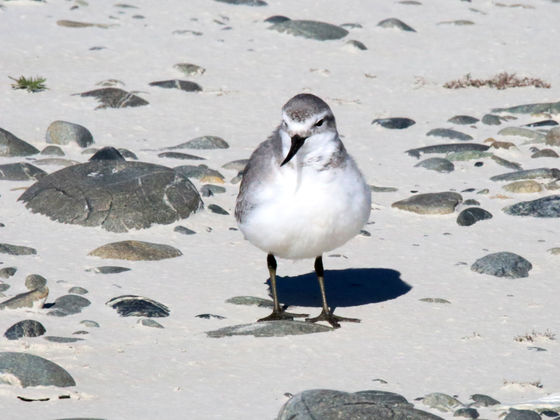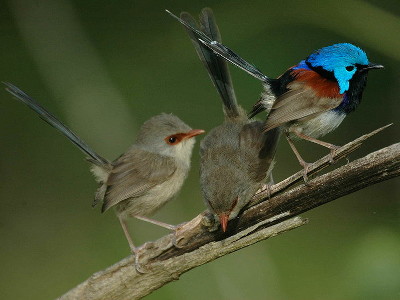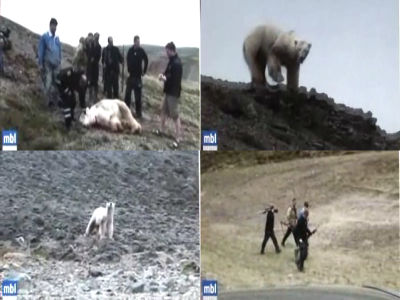Succeeded in saving endangered bird chicks from predators with 'fake news'

It has been warned that fake news has a dangerous side, such as being pointed out that '
Misinformation tactics protect rare birds from problem predators | Science Advances
https://advances.sciencemag.org/content/7/11/eabe4164
Scientists used'fake news' to stop predators killing endangered birds — and the result was remarkable
https://theconversation.com/scientists-used-fake-news-to-stop-predators-killing-endangered-birds-and-the-result-was-remarkable-152320
The New Zealand is the southwest Pacific Ocean island country, endangered species of wrybill and, quasi-endangered species of Chaobichidori including, rare shorebirds inhabit a number of birds. However, it is known that the number is being reduced by carnivorous predators such as cats, foxes and ferrets who came to the island with humans.

by
New Zealand is originally home to large carnivorous birds, but sandpipers and plovers cleverly create hidden nests between rocks to camouflage and produce eggs and chicks as native species. I have protected it from predators. However, alien predators brought in by humans can easily find nests of sandpipers and chidori by relying on the smell, so the countermeasures that endangered birds have acquired through evolution are like teeth. Does not stand. Methods to protect native species from invasive alien species brought in by humans include the capture and extermination of alien species, but these methods are currently not sufficiently effective in protecting native species. is.
Therefore, biologists at the University of Sydney, Australia, extracted the 'smell of birds' from chickens, quails, and seagulls. We conducted an experiment to apply an artificial 'bird scent' made by synthesizing with petrolatum to rocky areas in New Zealand. Since the experiment was conducted during the season when sandpipers and plovers were not in New Zealand, it can be said that this experiment was an experiment to deceive predators with 'lie information' of the smell of non-existent prey.
Through this experiment, it was observed that predators of alien species such as wild cats and ferrets repeatedly passed through rocky areas and repeatedly missed, and gradually became unable to approach rocky areas.

After the experiment, we investigated the rocky areas where the breeding season of sandpipers and plovers had come. The number was halved. ' As a result, the number of chicks returned from eggs in the rocky areas where the research team scattered fake news increased to 1.7 times that of the rocky areas where nothing was done.
Professor Peter Banks and Dr. Catherine Price of the University of Sydney, authors of the paper that published the results of this experiment, said, 'Our estimates show that this fake news strategy will increase the number of stag beetles in 25 years. It is predicted that it can be increased by 40%, while if nothing is done, the population will decrease by more than 40%. ' The fake news strategy was seen as an effective option when traditional methods of killing predators did not work.
Related Posts:







